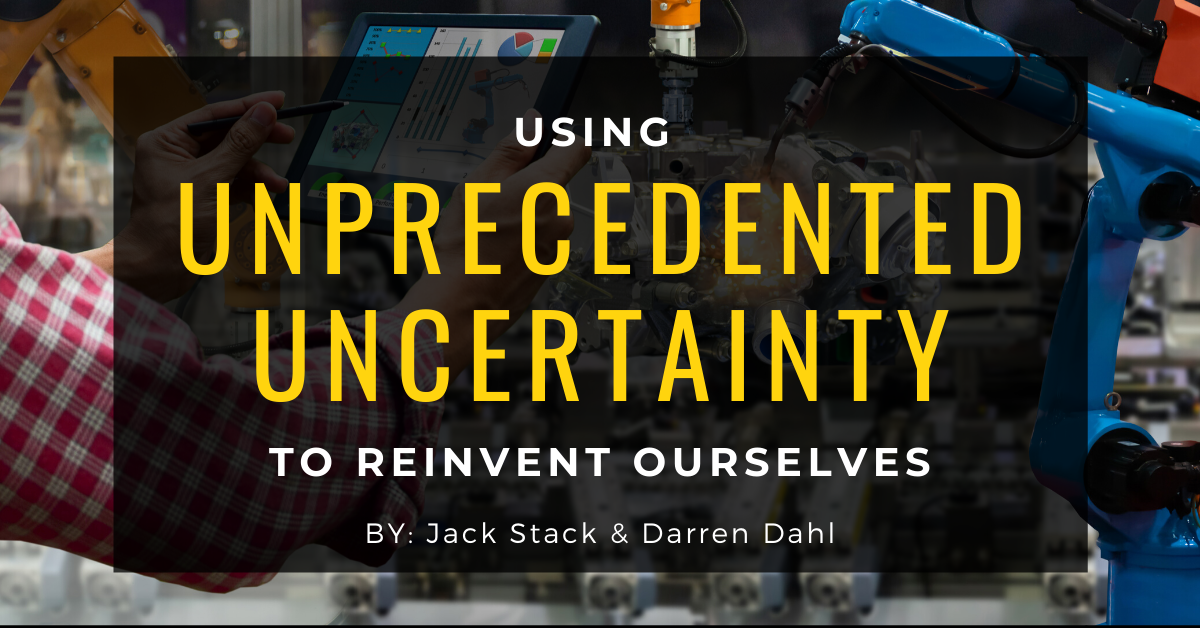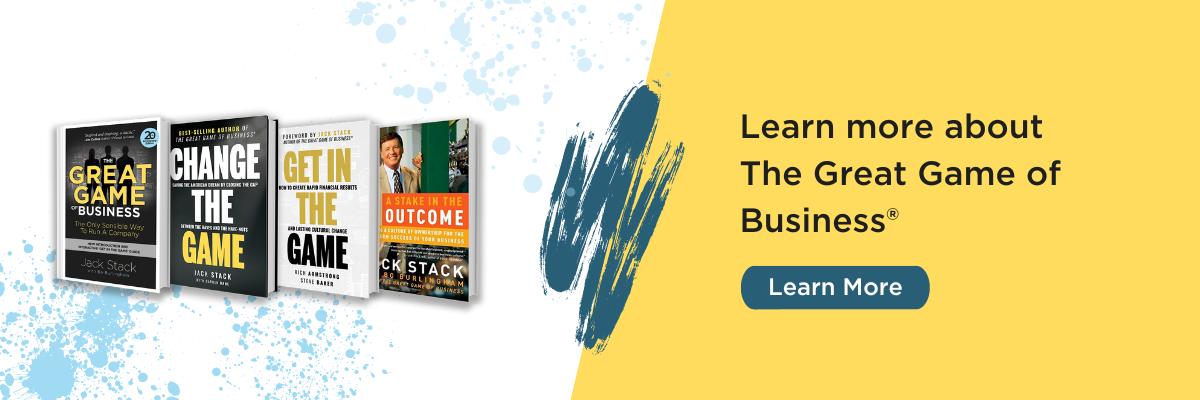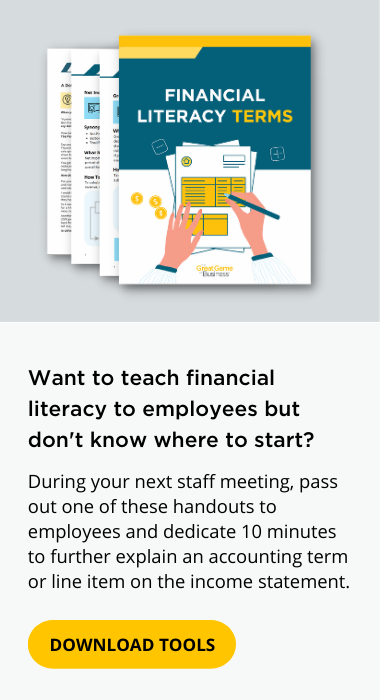
It’s been interesting to hear about how people are spending their time at home in isolation amidst the pandemic. Some folks I’ve talked to have spent the time looking through old picture albums and letters to reminisce about the past.
Parents have had to learn how to juggle their roles as caretakers with the new added job of schoolteacher. Others have taken up new hobbies like baking bread (if they can find enough yeast).
Then there are those who have used their time indoors to tackle home improvement projects of all kinds.
I came home from work one day, for instance, and my wife asked me if I noticed anything different. I looked around and admitted that I didn’t see any changes. Had she bought a new kitchen appliance or something? Wrong answer.
Turns out she had spent the whole day cleaning out all our closets and drawers. Whoops. I was suddenly facing a radical version of social distancing inside my own house.
While I've been able to continue to go into the office since our factories remain open for now, I’ve also had to prepare for spending more time in isolation as the pandemic crests in our state.
I have to admit, I’m not good with just sitting around. I knew I needed something to keep me occupied if I was going to be cooped up for any length of time.
So, this past weekend, I spent some time poking through my bookshelves to see if there were some opportunities to catch up on my reading.
As I thumbed through all the books on the shelves, one caught my eye. Imagine my surprise, though, when I picked it up, cracked the cover open, and saw my own name inside.
Turns out I had written the forward to this book way back in 1996. As I read what I had written back then—nearly a quarter of a century ago—I was stunned.
Here’s what I wrote:
It’s the last half of the last decade of the century, and by the numbers the United States economy is on fire. All the economic indicators would lead us to believe that we are headed for some of the best years of our lives.
Yet this is not the first time in my life that the economic outlook seemed so bright. Twice before the stage was set, but we blew it. How were we to know the reliance our economy had on oil and its relationship with the Middle East? We thought we were self-reliant. How were we to know that the Japanese would have a major impact on our marketplace and blast us into global competition?
How do we know now what today’s rosy outlook will deliver? Granted, we’ve accumulated capital—and a lot of it. But do we really know how to keep it this time? Where will the other shoe fall? I’m afraid it will fall between labor and management. I’m afraid that we haven’t learned our lessons from the past and that we haven’t learned how to win with a lead—that we are a come-from-behind society. We have an incredible ability to pull together in a life raft; yet ignore each other on a luxury liner.
It seems as though every time the economy gets going, we can’t figure out how to bring everyone along for the ride. It seems as though the only thing that stops us is the friction that success creates. The very core of capitalism is that those who create wealth should get to keep it. However, whenever it comes time to share that wealth, there is an imbalance between the worker’s rewards and the owner’s rewards. After all, the story goes, it is the owners who take the risks. And this is our weakness.
How do we make everyone feel like they can make a difference? How do we adequately reward everyone who has contributed to company success? How do we balance the risks and rewards and keep our global edge?
Is there a middle-ground approach that will not only prevent the labor-management shoe from falling, but also keep us from shooting ourselves in the foot? I believe so…
No one has all the answers, but we can put in place incentives that reward people for initiative hard work, and productivity while keeping us competitive in the global arena.
The author addresses “the middle,” the gap between the haves and the have-nots, and makes a convincing argument that if everyone understands the economic situation of the business, a compensation system can be implemented that provides job security, variable pay, and a chance at the brass ring—equity. If we don’t address “the middle” we will be faced with turmoil and discontent, and we will ultimately lose the competitive edge we have today.
A structure that allows owners to be competitive in the market while rewarding all participants if they do better than the market expects. These ideas may just be scratching the surface, but wouldn’t it be exciting if everyone had a role in building our future?
Jack Stack
February 1996
Talk about history repeating itself. Isn’t it tragic that we continue to face the same challenges over and over again even 24 years later?
I’m not sure we have made much progress in solving these issues I pointed at back then. Without business there is no society. What is it going to take to get us as a society to make real changes in how we get everyone involved in a business to share in its success?
I attended a conference earlier this year—a few months before the pandemic—where all of the attendees were from well-known companies. These were some of the top companies in the world.
Everyone was there to share their ideas about how to run businesses better. But, after two and half days listening to more than 25 presentations, I have to admit that each talk seemed to blend into the next one.
That’s when one of the attendees, a wise 96-year-old business guru, a legend, raised his hand to speak. He stretched his leg out into the aisle and uncoiled himself from his seat.
Looking at the moderator, he said: “I have not heard one new idea over the past few days!” I wanted to applaud, but the room had gone deathly silent.
A woman then stood up to talk. She was one of the top executives at a prestigious tech company. She turned toward the wise business guru and said: “I couldn’t agree with you more. As soon as we hit the next bump in the road like a recession, the first thing we’ll do is lay everyone off.”
No one spoke up to disagree with her. To me, that was such a sad conclusion. We had spent several days covering a range of different ideas in management theory, from the days of Frederick Taylor to the present, but we hadn’t come up with a single new idea.
Then, when we shut the economy down in the wake of the pandemic a few months later, companies did exactly what that executive predicted: they laid everyone off.
That depresses me because I know there’s a better way—one that’s been battle-tested for nearly four decades.
The idea behind the The Great Game of Business®, the leadership system we put together on our factory floor, was to get everyone inside the business—from the folks on the front-line to the executives—to work together as a team to survive the first crisis we faced back in 1983.
There would be no secrets—including the company’s financials. In fact, the financials became the joint scorecard that got labor and management working together on the same team.
The financials gave us a common language to communicate with and to plan our next actions. It also gave us a structure to find ways to diversify our business and opportunities to earn small wins together.
Everyone had the line of sight to understand how he or she could make an impact. We taught everyone that numbers are nothing more than stories about people. Perhaps as importantly, by getting everyone to use the same playbook, we could then distribute the wealth we collectively created to everyone who helped create it.
We’ve used that same model now to get through four prior recessions—each one worse than the one that came before it. And we’re using it again today to get through this one.
In fact, we’ll come out of stronger than ever because all of our associates—especially the ones going through their first downturn—will learn how we can come back.
The message behind our system—that we don’t have to leave anyone behind—has resonated with thousands of business leaders over the past four decades. For these folks, it touched something in their hearts.
At the same time, I’ve heard just about every excuse about why a system built on extreme transparency won’t work. Those excuses seem to be more prevalent during the good economic times. After all, if someone’s business is going gangbusters, why fix what’s not broke, right?
Everything’s broken right now. The amount of uncertainty is unprecedented. But this is our opportunity to reinvent how we run our businesses as we begin to mount our comeback.
Now, before the upturn begins, is prime time to rethink that relationship between employees and management and how we distribute the wealth we create.
Now is the time to make some bold moves, like opening your books and teaching your people how you make money so they can use their creativity and innovative ideas to help all of you not just survive this crisis—but be ready to thrive when it’s over.
Our goal has always been to find a way to teach the “have-nots” how the “haves” make it. It’s about creating and distributing wealth equitably as a way to close those gaps in wealth that plague our society.
Our mission has been to seek a brighter side of capitalism, one that truly transforms lives for the better along with the belief that no matter how grim things look, you can make them better.
You don’t have to wait for someone to bail you out—or for the economy to get on a roll again. You have the ability to attain peace, security, and happiness—if you’re willing to reinvent yourself and how you think about running a business.
And there’s no better time to start that than now.
With business and the economy in chaos, there’s one thing we know for sure: YOU HAVE TO MAKE BOLD MOVES TO CREATE YOUR NEW NORMAL. Don't let circumstance dictate where your company will be tomorrow...YOU decide. Where will you be in 90-days, 1-year, even 5-years down the road?
Take control of your situation
Harness the collective wisdom of your people
Create focus, alignment, and accountability around your financials
Execute with a sense of urgency
Get ready for the upturn
More articles you might like:
.png)






.png)




-5.png)

